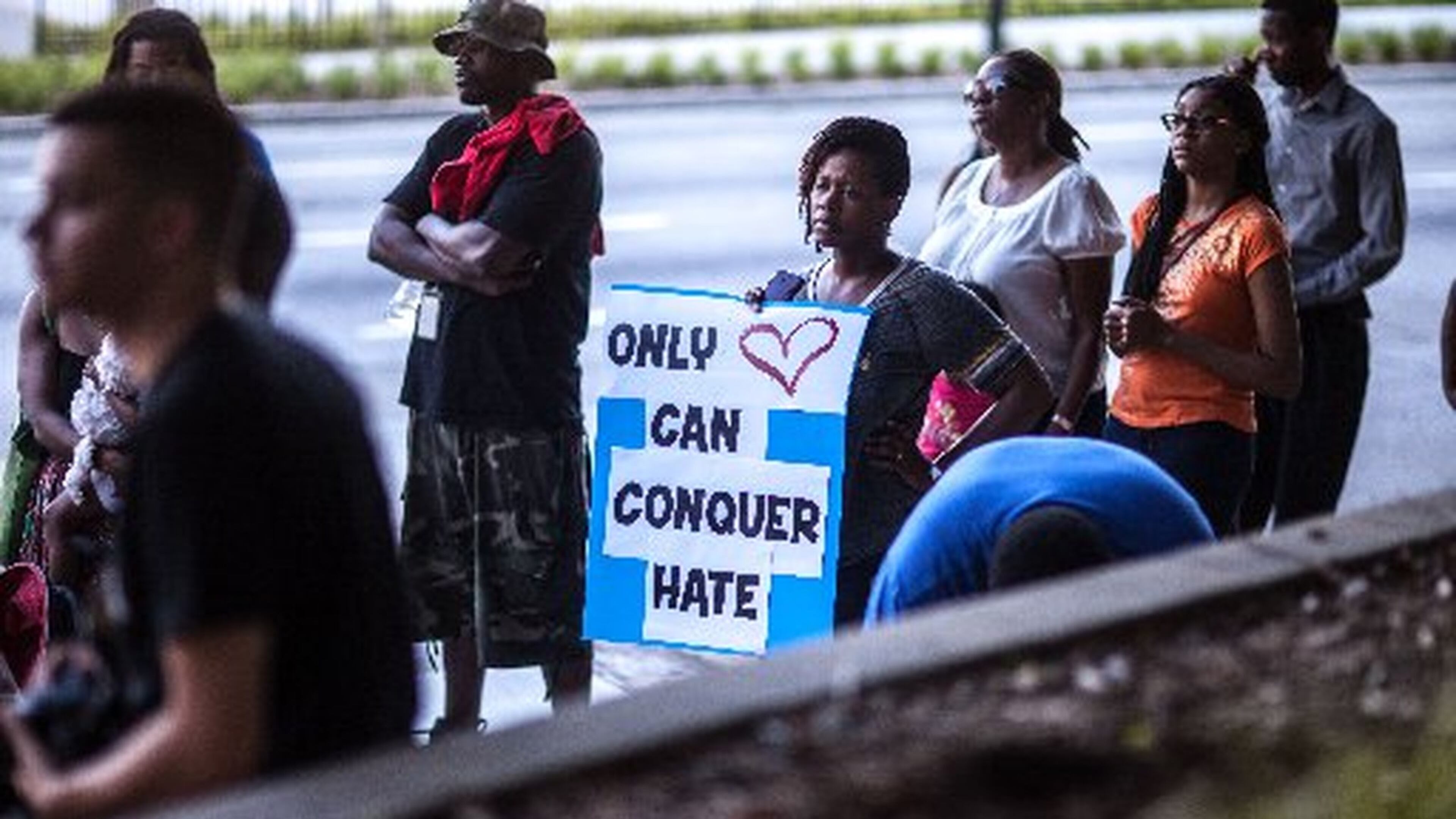Life with Gracie: When we choose to forgive

ABOUT THE COLUMNIST
Gracie Bonds Staples is an award-winning journalist who has been writing for daily newspapers since 1979, when she graduated from the University of Southern Mississippi. She joined The Atlanta Journal-Constitution in 2000 after stints at the Fort Worth Star-Telegram, the Sacramento Bee, Raleigh Times and two Mississippi dailies. Staples was recently promoted to Senior Features Enterprise Writer. Look for her columns Thursdays and Saturdays in Living and alternating Sundays in Metro.
Sometimes I’m so confounded by life’s events that all I can do is shake my head.
I don’t know what to think. I don’t know what to say. I don’t know if there is something I ought to be doing.
I felt this way again recently as I listened to all the television pundits opine on the Charleston, S.C., shooting victims' family members who one by one expressed forgiveness to Dylann Roof, the source of all their grief.
“I forgive you and have mercy on your soul,” Nadine Collier told Roof.
Then came an avalanche of mind-numbing backlash.
It is a sad day when black people in America acquiesce to this kind of behavior, one of them said. Then during an appearance on the National Rifle Association's radio show, conservative radio host Tony Katz said the victims' relatives showed "serious weakness" in forgiving the accused gunman. Many more just didn't get it.
And so suddenly in the midst of talk about hate crimes, Confederate symbols and race were stories about forgiveness.
Imagine that.
Instead of the anger and violence that have come in the wake of police shootings in Ferguson, Mo., and more recently in Baltimore, these families of Emanuel AME Church were spewing words of love and forgiveness.
While media pundits marveled at how instantaneous that forgiveness was extended, I remembered the early morning of Jan. 14, 2001, when I got a call that my youngest sister had been murdered by her husband. I remember feeling so consumed with the pain of having lost her there just wasn’t room for anything else, especially revenge.
I cried for hours, remembering the life we had together, how much she loved her husband and their two children. More than anything, I felt sorry for him.
While the pundits expressed their amazement at the Charleston families’ offers of forgiveness, I felt sorry for them, too.
Forgiveness is the foundation of Christian faith, and Jesus himself was our perfect example. Even as he hung on the cross, he asked that those who put him there be pardoned. “Father, forgive them; for they know not what they do,” Luke quotes him as saying. And when Peter asks him in the parable of the unmerciful servant recorded in Matthew, how many times he should forgive his brother or sister who sins, this was his answer: “I say not unto thee, Until seven times: but, Until seventy times seven.”
I had the pleasure years ago to interview Rabbi Harold Kushner, author of the best-selling book “When Bad Things Happen to Good People.”
He explained forgiveness this way: “Forgiveness is not a matter of exonerating people who have hurt you. They may not deserve exoneration. Forgiveness means cleansing your soul of the bitterness of ‘what might have been,’ ‘what should have been’ and ‘what didn’t have to happen.’ … There are perhaps no sadder people than the men and women who have a grievance against the world because of something that happened years ago and have let that memory sour their view of life ever since.”
When we are unable to forgive ourselves, we become paralyzed with guilt. When we are unable to forgive others, we become filled with resentment and anger.
That’s what I believe happened to my brother-in-law; to Dylann Roof; to the Boston bomber, Dzhokhar Tsarnaev; to James Holmes, on trial now for killing 12 people during a packed movie premiere in Aurora, Colo., three years ago.
While the police and courts are charged with dealing the legal issues of their crimes, I can tell you from experience that the families of the victims are forced to travel along both legal and moral tracks.
Roof sat for an hour with his victims during Bible study at Emanuel. Before rising to shoot nine people, including the church pastor, state Sen. Clementa C. Pinckney, he told them, he had to do it.
“I have to do it,” he was quoted as saying. “You rape our women and you’re taking over our country.”
The nature of his offense offends the conscience so much that forgiveness might seem out of reach because many of us wrongly believe forgiveness is synonymous with excusing or condoning.
The truth is forgiveness is a favor we do ourselves, not the person who has injured us. It’s a way of cleansing our hearts of bitterness, anger and, yes, hatred.
For Christians, it is what we are called to do. When we forgive, we free ourselves to love others as God loves us. Unconditionally.


